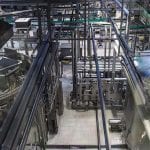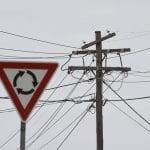Around The Web
300,000 join climate strikes across Australia
Australians stand up for climate change action – in pictures
Children take time off school and workers down tools to take part in the global climate strike
- Global climate strike: Greta Thunberg and school children lead climate crisis protest – live updates
Climate explained: why don't we have electric aircraft?
Nature Conservancy’s global photo contest winners 2019
The global conservation body Nature Conservancy, working in 72 countries to tackle climate change and to conserve lands, waters and oceans, has announced its latest photo winners, selected from more than 100,000 entries
Continue reading...Introducing the latest carbon neutral certified organisation
Introducing the latest carbon neutral certified organisation
Man v mosquito: what to do about our biggest killer
These tiny pests adapt so successfully to changing conditions that they have become humankind’s deadliest predator. We might soon be able to eradicate them – but should we? By Timothy Winegard
We are at war with the mosquito. A swarming and consuming army of 110tn enemy mosquitoes patrols every inch of the globe except for Antarctica, Iceland and a handful of French Polynesian micro-islands. The biting female warrior of this droning insect population is armed with at least 15 lethal and debilitating biological weapons, to be used against 7.7 billion humans deploying suspect and often self-detrimental defensive capabilities. In fact, our defence budget for personal shields, sprays and other means of deterring her unrelenting raids is $11bn (£8.8bn) a year, and rising rapidly. And yet her deadly offensive campaigns and crimes against humanity continue with reckless abandon. While our counterattacks are reducing the number of casualties she perpetrates – malaria deaths in particular are declining rapidly – the mosquito remains the deadliest hunter of human beings on the planet.
Taking a broad range of estimates into account, since 2000, the average annual number of human deaths caused by the mosquito was around 2 million. Humans came in a distant second at 475,000, followed by snakes (50,000), dogs and sandflies (25,000 each), the tsetse fly, and the assassin or kissing bug (10,000 each). The fierce killers of lore and Hollywood celebrity were much further down our list. The crocodile was ranked 10th, with 1,000 annual deaths. Next on the list were hippos with 500, and elephants and lions with 100 fatalities each. The much-slandered shark and wolf shared 15th position, killing an average of 10 people per annum.
Continue reading...The world is burning, and all Australia has is a big stick
 The world is burning, and Australia is doing nothing but waving a big stick. No wonder the kids have gone on strike.
The world is burning, and Australia is doing nothing but waving a big stick. No wonder the kids have gone on strike.
The post The world is burning, and all Australia has is a big stick appeared first on RenewEconomy.
Award for man who stopped a mega-dam and saved Borneo's rainforest
Amazon makes largest order of electric vehicles as part of 2040 zero carbon pledge
 Amazon makes biggest ever order for electric vehicles – via EV start-up Rivian – as part of plans to go zero-carbon by 2040.
Amazon makes biggest ever order for electric vehicles – via EV start-up Rivian – as part of plans to go zero-carbon by 2040.
The post Amazon makes largest order of electric vehicles as part of 2040 zero carbon pledge appeared first on RenewEconomy.
How the ACT’s 100% renewable electricity target is saving households cash
 ACT has demonstrated how turning to renewables can slash emissions, and protect customers from soaring electricity prices.
ACT has demonstrated how turning to renewables can slash emissions, and protect customers from soaring electricity prices.
The post How the ACT’s 100% renewable electricity target is saving households cash appeared first on RenewEconomy.
Google makes world’s biggest ever corporate renewables purchase
 Google announces a 1,600MW package of 18 new solar and wind energy purchase deals, that will take its total renewables portfolio to 5.5GW.
Google announces a 1,600MW package of 18 new solar and wind energy purchase deals, that will take its total renewables portfolio to 5.5GW.
The post Google makes world’s biggest ever corporate renewables purchase appeared first on RenewEconomy.
CP Daily: Thursday September 19, 2019
California endorses contentious Tropical Forest Standard for sector-based deforestation reduction
ARENA funds expansion of renewables in food processing, for power and heat
 ARENA chips in $460,000 into initiative seeking to dramatically increase the use of renewables to supply heat to food processing operations.
ARENA chips in $460,000 into initiative seeking to dramatically increase the use of renewables to supply heat to food processing operations.
The post ARENA funds expansion of renewables in food processing, for power and heat appeared first on RenewEconomy.
First all-electric Volkswagen to arrive in Australia will be an ID.4 SUV
 Volkswagen finally confirms the all-electric ID.4 SUV (nee ID Crozz) will precede the ID.3 electric hatchback in Australia.
Volkswagen finally confirms the all-electric ID.4 SUV (nee ID Crozz) will precede the ID.3 electric hatchback in Australia.
The post First all-electric Volkswagen to arrive in Australia will be an ID.4 SUV appeared first on RenewEconomy.
Climate strikes: Do we choose extinction? Or do we choose to fight it?
 We know how to fix this problem and we know we can afford to do so. Now it’s time to decide.
We know how to fix this problem and we know we can afford to do so. Now it’s time to decide.
The post Climate strikes: Do we choose extinction? Or do we choose to fight it? appeared first on RenewEconomy.
Climate strike: global climate change protest kicks off in Australia and Pacific – live updates
On Friday 20 September, millions of people led by Greta Thunberg and students from Sydney to Delhi, Melbourne to London and New York, will march for urgent action on climate change. Follow for all the latest school strike 4 climate news
- Climate strike in Australia: everything you need to know about Friday’s protest
- Why the Guardian is changing the language it uses about the environment
- Young strikers: ‘The crisis is already here’
1.29am BST
Absolutely huge turnout in Geelong where they’re singing and chanting.
At Geelong City Hall for the #ClimateStrike . Huge turnout pic.twitter.com/AA5Pbdo151
“No planet B” song at Geelong #ClimateStrike pic.twitter.com/5xrMAXkSzc
Townsville locals #Strike4Climate, not a single southern latte-sipper in sight. pic.twitter.com/VjAYF9qfrB
1.26am BST
First Barnesy now The Oils:
We support today’s #climatestrike - "it happens to be an emergency". Look at these average annual temps (dark red = hottest years). For everyone, especially the young, we are now at the crossroads. pic.twitter.com/k9XZoL44oE
Continue reading...Ageing Infrastructure the symptom, not the cause, of creaking energy market
 it is not ageing infrastructure holding Australia’s energy market back. It is ageing institutions that have failed to get a grid on technology change.
it is not ageing infrastructure holding Australia’s energy market back. It is ageing institutions that have failed to get a grid on technology change.
The post Ageing Infrastructure the symptom, not the cause, of creaking energy market appeared first on RenewEconomy.



